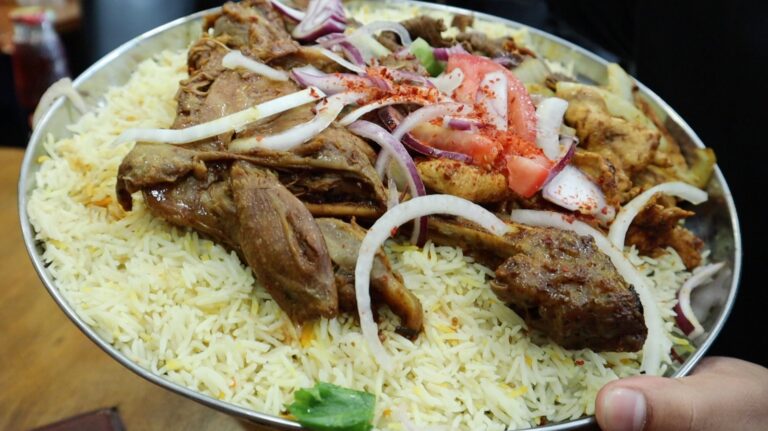Introduction: Somali Cuisine
Somali cuisine is a mix of African, Arab, and Indian influences, resulting in a unique and flavorful culinary tradition. It is characterized by the use of spices, herbs, and seasonings that vary depending on the region and the dish. Somali cuisine is also known for its stews, grilled meats, and flatbreads. Somali cuisine is rich in flavor, and its ingredients are often sourced locally, making it a delicious and sustainable way of eating.
Religion and Dietary Restrictions
Islam is the dominant religion in Somalia, and as a result, there are specific dietary restrictions in Somali cuisine. Muslims follow the halal dietary laws, which means they are forbidden from consuming pork, alcohol, and other intoxicants. In addition, the animal must be slaughtered in a specific way to be considered halal. This involves reciting a prayer before the animal is killed, and the animal must not be unconscious. These practices ensure that the meat is pure and free from harmful substances.
Ingredients and Food Preparation
Somali cuisine is based on ingredients such as rice, pasta, meat, fish, and vegetables, which are cooked with a variety of spices and herbs. Some of the most commonly used spices in Somali cuisine include cumin, coriander, cardamom, cinnamon, and turmeric. One of the most popular ingredients in Somali cuisine is Somali rice, which is often cooked with spices and served with meat or fish. Somali cuisine also uses a lot of garlic, ginger, and chili peppers to add flavor to dishes.
Meat and Dairy Consumption
Somalis consume a lot of meat, especially goat, beef, and camel. However, due to the strict halal dietary laws, the meat must be sourced from a certified halal butcher. Dairy is also a staple in Somali cuisine, with milk, yogurt, and cheese being commonly used ingredients. However, these products must also be sourced from halal-certified sources.
Traditional Somali Dishes
Some of the most popular Somali dishes include Somali rice, which is usually served with meat or fish. Other popular dishes include baasto (pasta with meat or vegetables), sambusa (a deep-fried pastry filled with meat or vegetables), and suqaar (a dish made with diced meat, vegetables, and spices). Somali cuisine also includes a variety of stews, such as maraq (a vegetable-based stew) and bisbaas (a spicy tomato-based stew).
Health Benefits and Conclusion
Somali cuisine is a healthy way of eating, as it is based on fresh, whole ingredients and is free from processed foods. The use of herbs and spices in Somali cuisine also has health benefits, as many of these ingredients have anti-inflammatory and antioxidant properties. Somali cuisine is also rich in protein and healthy fats, making it a satisfying and nutritious way of eating. In conclusion, Somali cuisine is a flavorful and healthy culinary tradition that is worth exploring.

